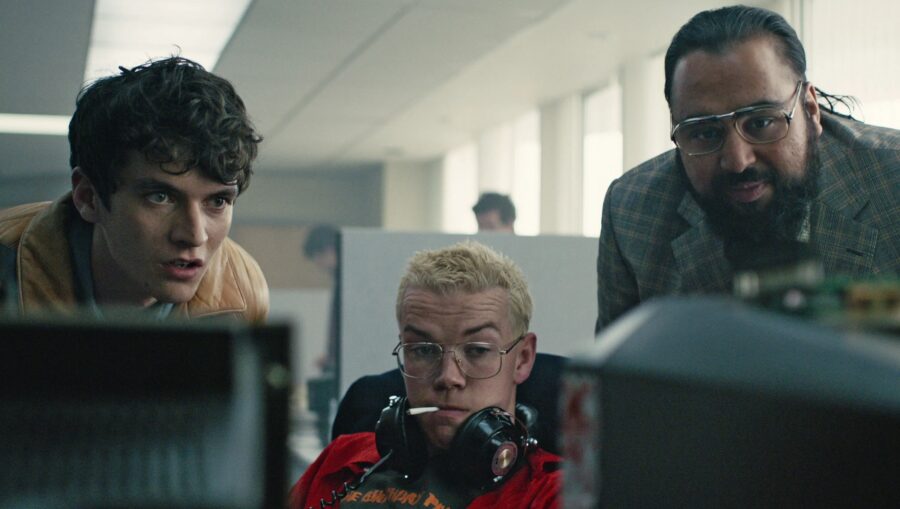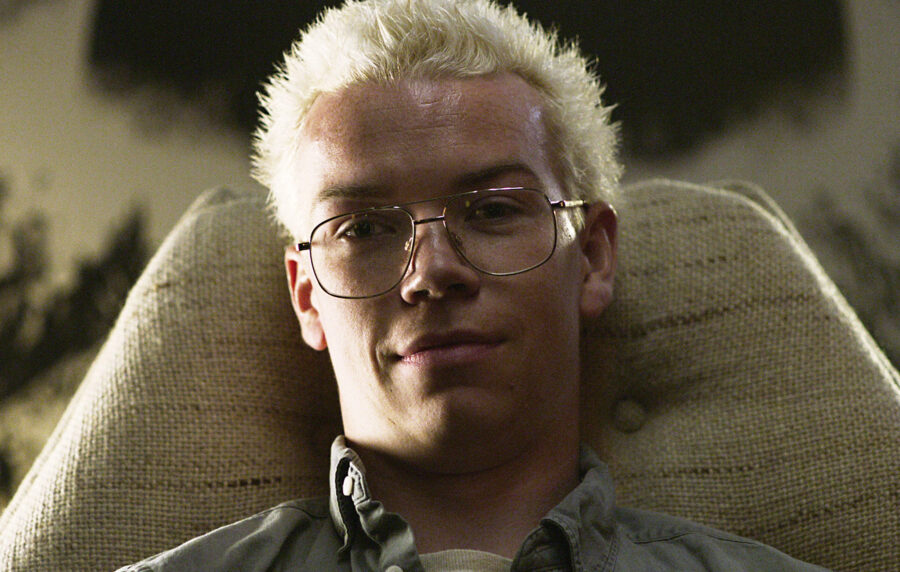The Sci-Fi Thriller On Netflix That Puts You In Control

Black Mirror is known for creating mindbending content that not only makes the viewers think long after they’ve turned off the TV screen but also makes the audience question quite literally everything.
In December 2018, Black Mirror took its enigmatic storylines one step further with the creation of Black Mirror: Bandersnatch, a story about a budding programmer who begins to doubt the fabric of reality as he transforms a deranged writer’s fantastical novel into a video game. The film, currently available to stream on Netflix, became a groundbreaking cinematic experience that left viewers questioning the nature of choice and free will.
Black Mirror: Bandersnatch finally made the “movie that you control” into a reality, allowing viewers to make choices that can result in widely different endings.
Written by Charlie Brooker, the creator of the acclaimed anthology series Black Mirror, and directed by David Slade, Bandersnatch is an experimental film that was created thanks to Netflix’s interest in dabbling in interactive storytelling. When Charlie Brooker and executive producer Annabel Jones were approached by Netflix and asked to create an interactive movie, the creation team had to find a way to do something that hadn’t been done before.
To make their vision work, Netflix had to come up with a brand new program called “Branch Manager” to oversee the crossing narratives and make sure that the story flowed seamlessly based on viewer choices.
Set in 1984, Bandersnatch follows the journey of Stefan Butler (Fionn Whitehead), a young programmer tasked with adapting a choose-your-own-adventure book into a video game. Viewers assume the role of decision-makers, guiding Stefan through a labyrinth of choices that ultimately shape the narrative.

At its core, Bandersnatch grapples with profound themes such as authorial control, free will, and fate. The film questions the very essence of choice and control, painting a picture of Stefan’s life being manipulated by external forces. This examination of free will is central to the film’s narrative, with certain endings celebrating the notion of choice while others deride it. This duality reflects the film’s complex exploration of the concept of control.
The movie also delves into the realm of postmodernism, incorporating meta-commentary and an unreliable narrator. Bandersnatch challenges traditional storytelling conventions, deconstructing and dissecting its own narrative structure. This self-awareness invites viewers to question the medium itself, creating a unique and immersive experience unlike any movie created before.
The choose-your-own-adventure genre isn’t a new concept. It’s existed in literature, video games, and even other cinematic works (though not on the same scale). The name Bandersnatch itself comes from literature, originating in Lewis Carroll’s works Jabberwocky and The Hunting of the Snark. The film also pays homage to the video game industry’s history, with the fictional game Bandersnatch mirroring the ill-fated real-world game by Imagine Software in 1984.
One of the most enjoyable ways to enjoy Bandersnatch is following the “Netflix” path, which adds a meta layer to the choose-your-own-adventure.
Furthermore, Bandersnatch exhibits shades of the works of Philip K. Dick, particularly in its exploration of alternate realities and timelines. The character Jerome F. Davies, an archetype of a tortured artist, can be seen as an allusion to Dick, who also struggled with personal demons. In an unsettling way, this connection highlights the film’s exploration of the relationship between mental illness, creativity, and violence.
Bandersnatch also cleverly weaves in references to earlier episodes of Black Mirror, creating an interconnected narrative universe. Though the film’s creators, David Slade, Charlie Brooker, and Russell McLean, insist that each Black Mirror story is created in isolation and not intended to fit into the same universe, as Black Mirror’s stories develop and the creators continue to add easter eggs in as nods to fans, the Black Mirror universe seem to evolve on its own.

Brooker even admitted that Will Poulter’s Bandersnatch character, Colin Ritman, might appear in other Black Mirror episodes later on down the road because, in some endings of Bandersnatch, he seems to fade away, though he has an awareness of other timelines.
Black Mirror has been one of Netflix’s greatest series and Bandersnatch continues to be a fascinating experiment to this day.
As far as the critics were concerned, Bandersnatch received a mixed but generally favorable critical reception. Critics lauded the film’s technical design, highlighting the seamless user interface and smooth transitions between choice points. The film’s ability to adapt to viewer choices without disrupting the narrative flow was widely praised.
However, Bandersntch’s narrative itself faced criticism, with some reviewers finding it repetitive or lacking in originality. Some felt that the choices led to a sense of frustration, while others questioned the depth of character development. Nevertheless, many critics appreciated the self-referential aspects of the film, particularly the “Netflix” branch of the story, which added an extra layer of meta-commentary.












